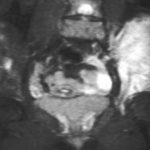1. Treatment with pembrolizumab yielded a best overall response rate of 71%.
2. Adverse events occurred in 76% of patients, but none were grade 4 or higher.
Evidence Rating Level: 2 (Good)
Study Rundown: Immune checkpoint inhibitors have been a common treatment option in many cancers. With a paucity of viable treatment options in classic and endemic Kaposi’s sarcoma, this study explored pembrolizumab (a programmed cell death 1 inhibitor) as a potential therapy regimen. Patients were only assigned to a treatment group. While endemic Kaposi’s sarcoma is more aggressive than the classic version, both types responded to pembrolizumab. The primary endpoint was the best overall response rate, defined as patients having complete or partial responses from treatment using a modified AIDS Clinical Trial Group (ACTG) criteria. The best overall rate response was observed in 71% of patients. The median time to response was 4.8 months and the median time to progression was 24 months. Adverse events were observed in 76% of patients; most were grades 1 and 2 but none were grades 4 or more. No significant quality of life improvements from baseline was observed. Limitations to this study include its small sample size, short treatment duration, predominantly male patients, and its lack of a comparison group. The strength of this study is that it suggested pembrolizumab had a tolerable safety profile and anti-tumour activity in patients with classic or endemic Kaposi’s sarcoma, which is still an area of unmet need. Overall, this study showed promise for pembrolizumab as a treatment option in patients with classic or endemic Kaposi’s sarcoma.
Click to read the study in The Lancet Oncology
Relevant Reading: Treatment for Kaposi’s sarcoma
In-Depth [prospective cohort]: This single-arm, phase II clinical trial in France included 17 patients with Kaposi’s sarcoma; 8 had classic and 9 had endemic Kaposi’s sarcoma. The best overall rate response from ACTG criteria was observed in 71% (95% confidence interval [CI], 44 to 90) of patients, with 12% having a complete response and 59% having a partial response. The median time to response was 4.8 months (interquartile range [IQR] 3.4 to 12.0) while the median time to progression was 24 months (95% CI, 21.2 to not evaluable). At least one treatment-related adverse event was observed in 76% of patients, with the majority being grades 1 and 2. Only 12% of patients had grade 3 adverse events (acute cardiac decompensation or a granulomatous reaction) and no higher grades were observed. Overall, pembrolizumab showed a best overall response rate of 76% of patients with endemic and classic Kaposi’s sarcoma and presents as a promising treatment option.
Image: PD
©2022 2 Minute Medicine, Inc. All rights reserved. No works may be reproduced without expressed written consent from 2 Minute Medicine, Inc. Inquire about licensing here. No article should be construed as medical advice and is not intended as such by the authors or by 2 Minute Medicine, Inc.


